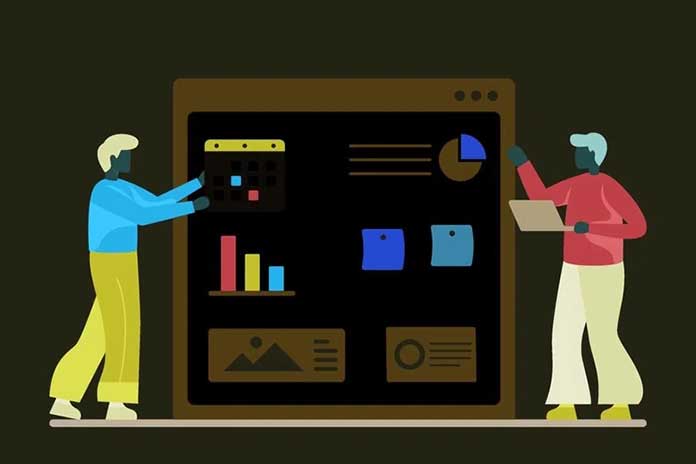Henkel Modellbau GmbH has decades of experience in model and tool making and is increasingly specialising in the contract manufacturing of CNC-milled mechanical engineering and design components. The multi-project management system ams. ERP provides the necessary process support.
Multi-Project Management System In Use: The Hessian company Henkel is a third-generation family business with a wide range of model and tool construction services. To be crisis-proof in the future, Managing Director Christoph Henkel is constantly working on expanding the company’s field of activity. He pays particular attention to expanding his CNC contract manufacturing, for which the modern, 22 CNC workstations comprehensive machine park offers the best conditions.
Successfully Integrate All Systems Into One
To put old and new business activities on a solid process-technical foundation, the company boss decided in 2020 to implement the integrated industry software ams. ERP with its outstanding design for single-item and order-to-order production. The new ERP system went live in April 2021 and replaced outdated merchandise management software and another system from the same manufacturer for managing technical data.
Multi-Project Management System: Complete ERP Restart
Christoph Henkel describes the lack of consistency: “At the workbench, the procurement information from the commercial system was not available in the technical system, so it was unclear whether and when a required part had been ordered and when it would be available. Order confirmations could not be viewed either.” To rule out such complications in the future, he decided to restart the software completely: “We wanted to set up the processes from scratch – with an ERP system that would integrate the data from scratch and has mastered both the commercial and the technical disciplines.”
The supplier’s focus on one-off and small series production was a decisive factor in the selection. The tools manufactured by Henkel are either unique or produced in small numbers. The requirements in terms of geometry, material, and application area are always different, even between the small series. The software provider was able to take this production approach into account right from the start: “During the selection interviews, it was always clear that our contacts on the ams side knew our business model very well,” reports Christoph Henkel.
Working Without Article Numbers
This specialisation’s “growing bill of materials” functionality is a central element. Because, as is usual in one-off, made-to-order, and variant production, Henkel Modellbau does not usually know the final product characteristics when the order is placed. Critical value-added processes such as design, procurement, and production simultaneously occur. The growing bill of materials represents all changes resulting from ongoing design work in a version-safe manner. Since the multi-project management system links the order-related ERP postings with the order parts list, everyone involved can view the current project status at any time. In real-time, employees in procurement and production learn which work has already been carried out and which steps are due when. At the same time, the production or delivery status of the parts to be installed is entirely transparent. This point becomes even more critical when specific work steps such as turning and grinding are carried out externally, as at Henkel.
More Structured Way Of Working Through The Multi-Project Management System
As far as the business side is concerned, the boss considers it a great relief that ams.ERP provides real-time updates and progress of all ongoing projects across departments. Since all work areas and projects are networked, it is possible to assess how changes will affect a specific ongoing order and all other orders precisely. For example, if delivery dates are at risk or if the profitability of an entire order is at stake, suitable measures can be taken to prevent financial damage.
Overall, the new system was the basis for establishing a more structured way of working. Apart from minor adjustments, Christoph Henkel bases his process organisation on the industry-proven standard of the software. One year after the implementation, the desired improvements were achieved. Above all, the transparency in the cost structures and the entire project processing increased significantly. This is reflected, among other things, in the fact that the supply of materials and the ability to precisely plan deadlines are guaranteed at all times.
Also Read: Risk Management: This Is How You Stay Prepared For Anything!


